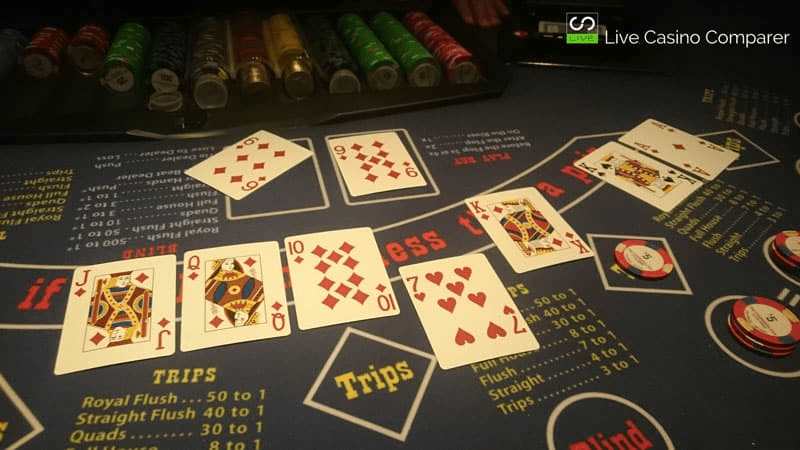When Covid first appeared and started causing casinos to shutter and close, most experienced casino executives thought it was a temporary condition that would soon go away.
As we all know now, it obviously is something that the gaming industry will be dealing with for years to come as these new variants to the first Covid-19 virus continue to mutate and spread at higher infection rates with each new version.
All casino and hotel operations including security have been affected by Covid in many different ways, and it has challenged executives to come up with creative solutions to what were once routine and simple operational protocols. As always, casino executives have met those challenges to continue to operate and, in some instances, improve their bottom-line profits.
Many properties have improved revenues and report record high numbers of incoming gross revenue and customer counts even with fewer employees to service the guests. In my travels just this last year, I have found that when I stay at a casino property, many services are no longer available—such as room service—yet, there is no measurable reduction in hotel rate or the “resort fee.”
Restaurants all operate on reduced hours and service at a level that was never tolerated by the guests prior. The complaints must also have dramatically increased. Only time will tell if that will have created a condition that will deter future guests and revenue. And as it has been historically, the customers still come, taking their chances at winning big and getting out and away from the home Covid confinements.
Rules And Regulations
The barrage of mandates by state governors and other officials has had a tiring effect on gaming operations in all jurisdictions. The on-again/off-again mask rules that are virtually different in every state made it difficult for those casinos that required masks and social distancing to expect the public to know which rules applied when they traveled to their favorite casino.
The rise and fall of the “mask police” has created many issues for the casino executive, too. Customers who by strong conviction will not wear masks were sometimes arrested for trespass by security after the simple request was escalated to an eviction and they refused to leave. Managing slot areas with every other slot machine turned off and plexiglass shields on the gaming tables also proved challenging. The ever-popular buffets that had to close or seriously modify the serving of food also became a headache. But the customers still continued to come.
Some states like Nevada formally created gaming regulations to comply with the orders from the governor on masks and other measures. After a series of large fines were levied against gaming properties in both northern and southern Nevada, all casinos were forced to enforce mandates, causing more challenging confrontations from defiant customers.
Challenges Of The Labour Market
There has never been a large labor pool for security officers, and most security directors will tell you that even though they have approved staffing levels, they historically have rarely filled those levels with competent staff. In my work as a consultant, I found that a typical average of 10 percent-15 percent security staff shortage was normal for security departments BC. Attracting qualified and competent security officers has always been a challenge for most gaming properties.
Wages for security officers were always dependent on the jurisdiction, and market conditions and labor expense were fairly predictable from a budgeting standpoint BC. Now the wage range has expanded and, in some instances, surpassed previous levels significantly. Another security consultant in Australia advised me that some casinos were advertising $90 per hour for the holiday period to attract qualified people just for the Christmas and New Year’s period to supplement their already short-staffed operations.
Fast forward to the start of 2022. Labor market conditions have dramatically changed, and some casinos report as high as 50 percent staff shortages in security with very few applicants regardless of wages and benefits offered. There are many different theories for this shortage in personnel—which although interesting, do not help solve the issue or the lack of people to hire in security.
Regardless, with less security personnel working and patrolling the properties, there is less security presence and security footprint in gaming properties than was traditionally in place BC. This has created a need to re-evaluate what functions security personnel routinely do and prioritize those functions.
Going Forward With Less Security
The impacts of less security personnel and increased criminal incidents at casino properties will surely create fertile ground for plaintiff lawyers. The higher turnover of personnel will create challenges for defense attorneys in locating important witnesses years from now when lawsuits finally get to trial, or when it is more prudent to settle.
Continue to assess and evaluate the security functions and narrow the tasks they perform to those that offer the most protection and oversight of the customers.
Document quarterly in a department report the difficulties in finding personnel and providing them equipment and training to create evidence that the property did what was reasonable to provide safety and security under difficult circumstances.
Track and monitor the crimes that occur on your property all the way through the prosecution of perpetrators and chart the results. Be diligent in analyzing the crimes that do occur on your property or as a result of a patron’s activities on your property and track by day of week, time, location and circumstances, and design countermeasures to deter, reduce or eliminate the opportunity for criminals.
Continue creative solutions to supply chain issues that pose operational challenges and use more out-of-the-box thinking.
Keep doing what the gaming industry does best, adapt to the existing conditions. We know that the customers will continue to come regardless of the Covid conditions as long as regulations allow it.








0 Comments